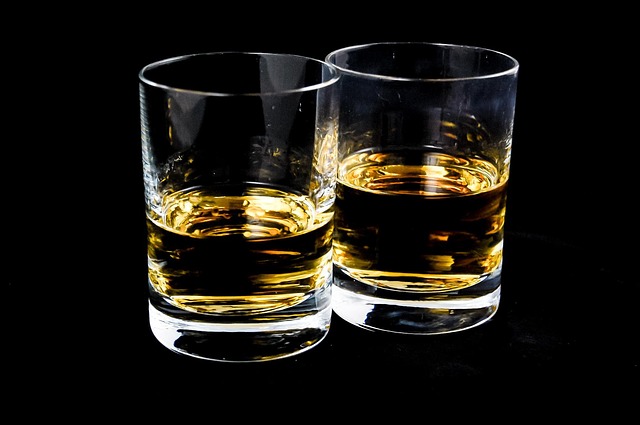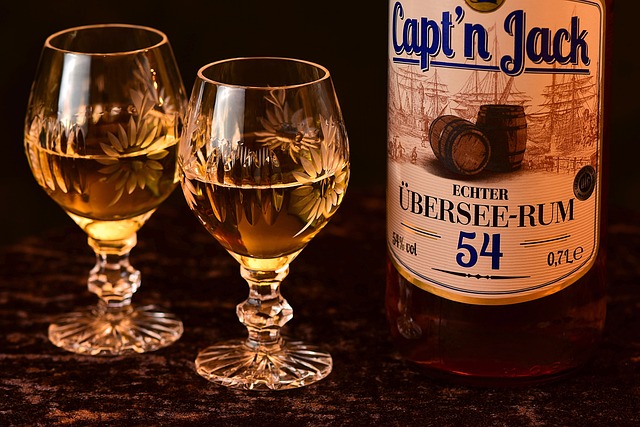Traversing the labyrinthine nuances of obtaining a liquor license can be quite an enigma, filled with complexities and perplexities. This is particularly true for novices venturing into hospitality or alcohol sales sectors. As a global regulatory procedure, it manifests in different guises across countries, states, and even cities – each having distinct rules.
In the vast expanse of the United States, this process takes on another level of complexity. Each state has its own designated Alcohol Beverage Control (ABC) board which serves as the guardian of liquor laws while simultaneously controlling the issuance of licenses. Entities aspiring to indulge in buying, serving or selling intoxicating beverages are obligated to procure proper credentials from these governing bodies.
Consider Ohio as an example amidst many others: rather than being confronted by an impenetrable bureaucratic fortress that threatens to engulf you whole; here one finds a surprisingly user-friendly tool known as Ohio Liquor License Lookup. It’s essentially a digitized system that demystifies the daunting task of searching for licenses by providing swift and precise information about them and their current status.
This database is also dynamic – constantly evolving with new entries reflecting freshly awarded licenses or modifications in existing ones along with details about revoked permissions. Hence it ensures anyone can effortlessly confirm licensing data at any given time – offering just a glimpse into the multifaceted world of liquor licensing procedures while underlining their significance and why grasping them thoroughly is imperative.
The Importance of Having a Liquor License
In the realm of libation commerce, exacting rules stipulate the requisite permit for peddling spirits, underscoring the crucial nature of procuring a liquor license. This lawful authorization not only ensures legal compliance but carries significant economic repercussions as well. A curious intellect may ponder, “What’s the price tag on an Ohio liquor license?”. The monetary demands indeed fluctuate broadly, hinging on the category of license acquired and ranging from mere hundreds to many thousands.
However, this expense seems meager when juxtaposed with prospective earnings and business authenticity that stems from legally sanctioned alcohol sales. Without question, fiscal consideration is one lens through which we can examine liquor licensing acquisition. Yet concurrently even though queries like “What’s the cost implication of an Ohio Liquor License?” are justified they also shed light on less tangible aspects associated with holding such a permit.
The possession of a liquor license denotes superior service standards and an expansive product assortment anticipated by patrons frequenting dining and entertainment joints. This alone could catapult customer pleasure levels and loyalty higher thereby fostering flourishing business operations. Consequently, owning a liquor license becomes instrumental in revenue generation and future expansion thus vindicating its initial outlay.
Different Types of Liquor Licenses

In the labyrinth of options for selecting a liquor license type, determining the right fit is influenced by factors like geographical placement and your establishment’s nature. You’re curious about obtaining a liquor license in Ohio? Like numerous other states, it’s crucial to understand that your chosen license category will influence what kind of alcohol can be lawfully dispensed and under which conditions.
Let’s dive into some concrete examples. Take beer and wine licenses – they confine an establishment to just serving beers and wines. Conversely, if you own an institution where alcoholic sales contribute substantially to total revenue, say bars or nightclubs, then a tavern license seems perfect for this scenario. Finally, we also have specialized licenses such as a restaurant liquor license; this allows the sale of spirits along with beer and wine but only when served with food. In short, your choice of liquor licence serves as both an operational blueprint and profitability predictor for your business.
How to Apply for a Liquor License
Plunging into the labyrinth of applying for a liquor license demands an initial comprehension of your state’s specific regulations, which can vary to significant extents. For Ohio dwellers, it is the Ohio Division of Liquor Control (ODLC) that stands as the sentinel over liquor licenses distribution and regulatory affairs.
To navigate this process in Ohio, one must meticulously fill out a request form and attach all necessary documents enlisted on the checklist. This includes a comprehensive application form, proof of residency confirmation, sketches illustrating the proposed premises among other essentials. Accuracy in every particular ensures swiftness in processing.
An aspect not to be overlooked while submitting applications is ‘How long does a liquor license last in Ohio?’. Generally speaking, most licenses are issued annually but depending on their type some may stretch up to three years’ validity. It’s pertinent for applicants to remember that renewal applications should be lodged well before their current license expires.
It’s prudent therefore to set sail early on this journey as processing time could span between 10-12 weeks especially if your permit class necessitates public notice requirements fulfillments. The ODLC will then embark upon an exhaustive evaluation involving local legislative consultations and general background checks prior concluding upon your liquor license application.
To simplify, here’s a step-by-step guide on how to apply for a liquor license in Ohio:
- First and foremost, familiarize yourself with the specific regulations of your state. In Ohio, these are governed by the ODLC.
- Begin by filling out an application form meticulously. Ensure all details are accurate to expedite processing.
- Attach all necessary documents as per the checklist provided. This includes but is not limited to:
- A comprehensive application form
- Proof of residency confirmation
- Sketches illustrating the proposed premises
- Be aware of the duration of your desired license type. Most licenses in Ohio last one year but some can stretch up to three years depending on their type.
- Remember that renewal applications should be lodged well before your current license expires to avoid any disruptions in service.
- Start this process early as it could take between 10-12 weeks due to possible public notice requirements fulfillments.
After submitting your application and accompanying documents, expect an exhaustive evaluation from ODLC which will involve local legislative consultations and general background checks before arriving at a decision regarding your liquor license application.
In conclusion, applying for a liquor license requires careful attention to detail and understanding of state-specific regulations. By following these steps diligently you can successfully navigate through this complex process with minimal hurdles.
Requirements for a Liquor License Approval
Embarking on the quest to acquire a liquor license, be it in Ohio or elsewhere, necessitates strict adherence to certain particular criteria. The qualifying prerequisites often encompass specifications related to the aspirant’s age, criminal past and financial solidity. Moreover, contenders must have legal entitlement over the establishment where they intend to vend alcohol whilst complying with zoning regulations.
In relation to your inquiry of “Is an Ohio liquor license saleable?” – the response isn’t as linear as a mere ‘yes’ or ‘no.’ Ordinarily, specific kinds of Ohio liquor licenses like D5 and D6 are viewed as assets that can be marketed, transferred or leased. However, this is contingent on specific terms and conditions along with approval from the Ohio Division of Liquor Control. It is perpetually recommended seeking professional counsel for accurate legal guidance concerning this issue.
Common Mistakes to Avoid When Applying for a Liquor License
Ensnared in a web of intricacies, applicants often stumble on the path to securing a liquor license. The labyrinthine maze of regulations and requirements peculiar to each state or locality looms large as an unsurpassable obstacle. In this perplexing terrain, broad-brush assumptions drawn from disparate regions can lead one astray. Thus, it is incumbent upon the applicant to delve deep into local ordinances pertaining to liquor licensing – an assiduous quest for understanding that paves the way for a seamless application process.
Yet another pitfall lurking beneath the surface is negligence towards paperwork and documentation – an aspect bursting with criticality in this context. Filling out forms with precision, completeness, and legibility emerges as non-negotiable; any lapse therein opens up chasms of potential delays or worse still, outright rejection of applications. Unattended errors or omissions, half-filled forms or cavalier disregard for timelines spell doom inevitably.
The counsel here then is simple yet potent: keep your paperwork under constant vigilance; scrutinize every detail minutely; adhere strictly to deadlines prescribed without fail. This meticulous regimen wards off complexities thus amplifying chances of success in the pursuit for a liquor license.
The Duration and Renewal Process of a Liquor License
Immersing oneself in the intricacies and labyrinth of liquor licensing is vital for those striving to thrive in the bustling world of food and beverage commerce. The lifespan of such licenses often dances on a string, swaying according to whims of the issuing authority and license type obtained. This timespan pirouettes from one year up to three, reaching its final bow as it spirals towards expiration. A renewal process must then be undertaken for legal alcohol sales to persist unfettered.
This dance continues with the renewal process, which spins like a top under the watchful eyes of respective liquor licensing bodies. It generally involves crafting a well-documented renewal application bedecked with a specific fee attached like an ornate brooch. One must not forget that these applications are expected to make their entrance weeks or even months before the curtain falls on your current license’s performance date. An error in timing could lead to harsh reviews in form penalties or maybe even an intermission from selling spirits altogether.
To evade this undesirable critique, holders of these coveted licenses are fervently encouraged to maintain vigilance regarding processes and deadlines.
FAQ
The longevity of a licensed authority to vend alcohol fluctuates by jurisdiction, but generally falls within a one to three-year timeline.
To refresh your beverage permit, you’ll typically need to submit an application, incur renewal charges and possibly undergo supplementary inspections. It is recommended that you initiate this process before the expiry date arrives in order to avoid any pauses in your business proceedings.
Each jurisdiction has its own unique set of requirements; however, it usually entails reaching the legal drinking age, maintaining a clean criminal record and adhering strictly to specific codes tied to premises such as zoning laws or health safety regulations. In certain quarters, completion of an alcohol server training program might also be necessary.
Generally speaking, applying involves filling out requisite forms along with paying the corresponding fee and providing supporting documents like perhaps a business plan or proof of property ownership/lease agreement. Sometimes layout plans of premises may also be required.
Yes indeed! There are several variants available ranging from those permitting sales of only beer and wine to full-blown alcoholic drinks as well as wholesale trading permits. The kind needed would largely depend on your enterprise’s nature.
A few mistakes include lack of comprehension regarding local rules & regulations, submitting incomplete or incorrect information in the form and not initiating the process early enough prior planning alcohol service at their establishment
If selling or serving alcoholic beverages is part of your business model then possessing A valid Liquor License is non-negotiable from a legal standpoint. Beyond that, it can also substantially boost your income and project an image of responsibility & law-abiding conduct to patrons.



